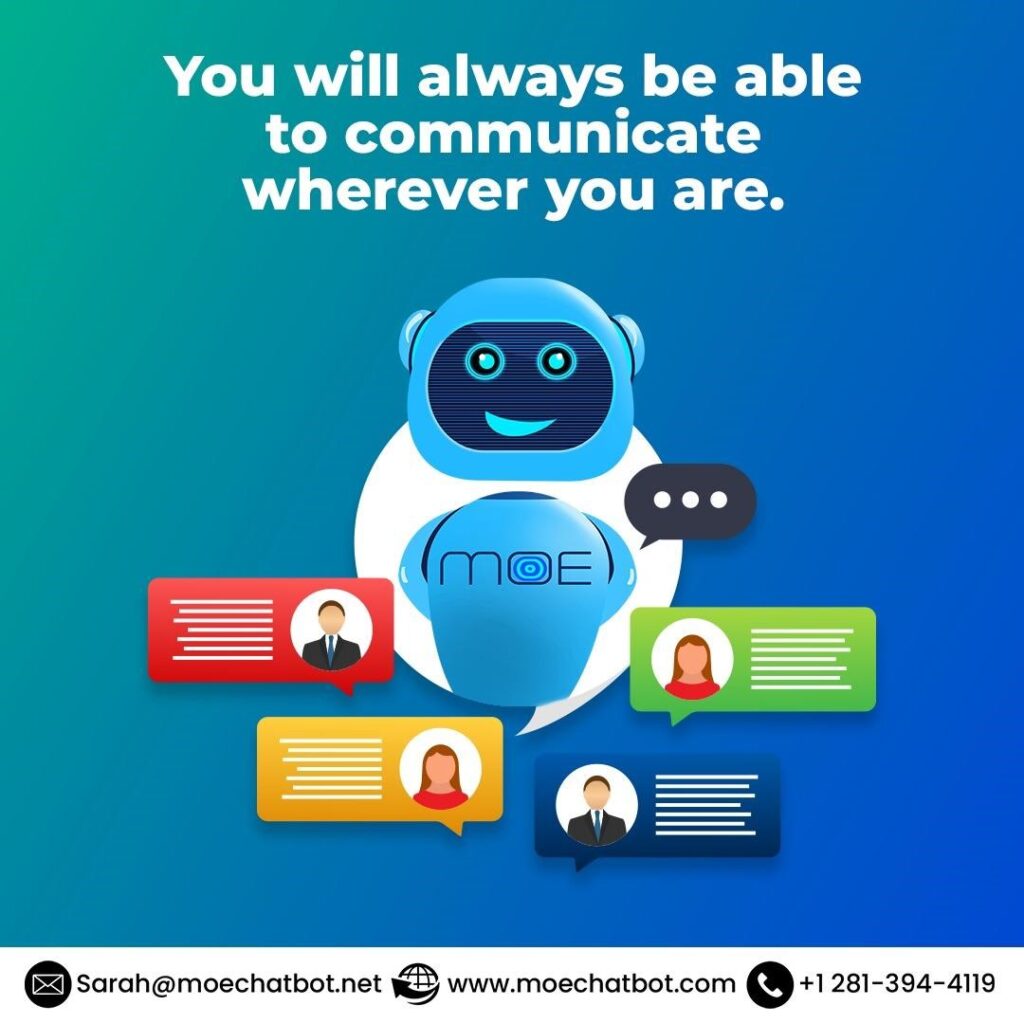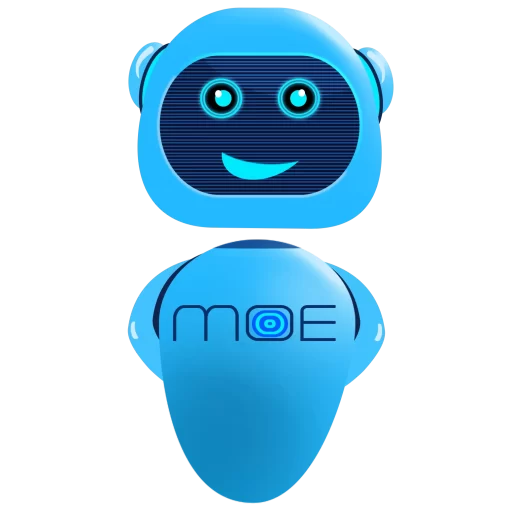1. Introduction: The Growing Significance of Chatbot Companies in the USA
Let’s face it, we live in the age of instant gratification. We want answers, solutions, and recommendations, and we want them now. This demand for immediacy has given rise to the incredible growth of chatbot technology. Chatbots, the computer programs designed to simulate human conversation, are now an integral part of our daily lives. From customer service interactions to virtual assistants, chatbots are everywhere, and they are here to stay.
Impact of Chatbot Companies on the Startup Ecosystem
Chatbot companies have emerged as a game changer for startups in the USA. These innovative companies are not just providing a trendy technology solution, but they are also revolutionizing the way startups operate and engage with their customers. By leveraging chatbot technology, startups can streamline their customer support, enhance user engagement, and even drive sales and revenue growth. The impact of chatbot companies on the startup ecosystem is undeniable and has opened new doors of opportunities for these fledgling businesses.
2. The Evolution of Chatbots: From Simple Assistants to Advanced AI Systems
Early Development of Chatbot Technology
The journey of chatbots started long ago, with the first chatbot, Eliza, developed in the 1960s. However, it wasn’t until recent years that chatbots truly evolved and gained widespread adoption. Early chatbots were simple rule-based systems that followed predefined patterns of conversation. While they could handle basic inquiries, their capabilities were limited.
Advancements in AI and Natural Language Processing
With advancements in artificial intelligence and natural language processing, chatbots have become smarter and more capable of understanding human language and context. AI-powered chatbots can now analyze user intents and respond accordingly, making the conversation feel more natural and human-like. These advancements have propelled chatbots into the realm of sophisticated virtual assistants.
Integration of Machine Learning for Enhanced Chatbot Capabilities
Machine learning has further enhanced chatbot capabilities by enabling them to learn and improve over time. Chatbots can now leverage vast amounts of data to continually refine their responses and provide more accurate and personalized assistance. This integration of machine learning has transformed chatbots into intelligent conversational agents, capable of adapting to various situations and delivering tailored experiences.
3. The Benefits of Chatbot Technology for Startups
Streamlining Customer Support and Service
Customer support is a crucial aspect of any startup’s success. However, hiring and training a dedicated support team can be expensive and time-consuming. Chatbot technology offers startups a cost-effective solution to streamline customer support and service. With 24/7 availability and instant responses, chatbots can handle a wide range of customer inquiries, freeing up valuable time for startups to focus on other core activities.
Cost Savings and Efficiency Gains
Running a startup often means operating on a tight budget. Chatbot technology can significantly reduce costs by automating repetitive tasks and minimizing the need for human intervention. By automating processes, startups can achieve greater efficiency, allowing them to accomplish more with fewer resources.
Enhanced User Engagement and Personalization
In today’s competitive business landscape, user engagement is key to success. Chatbots offer startups a unique opportunity to engage with their customers on a personal level. By leveraging AI capabilities, chatbots can analyze user preferences and provide personalized recommendations, creating a tailor-made experience for each user. This personalized engagement fosters customer loyalty and drives business growth.
4. Success Stories: How Chatbot Companies have Transformed Startups in the USA
Case Study: Chatbot Integration in E-commerce Startups
E-commerce startups have seen significant benefits from integrating chatbots into their platforms. Chatbots can assist customers in finding products, provide real-time support, and even process orders seamlessly. This integration has not only improved customer satisfaction but has also led to an increase in sales and revenue for these startups.
Chatbots Driving Sales and Revenue Growth in Service-oriented Startups
Service-oriented startups, such as food delivery or personal fitness services, have also reaped the rewards of chatbot implementation. Chatbots can handle bookings, answer FAQs, and even recommend personalized services based on user preferences. By automating these processes, service-oriented startups have witnessed a significant boost in sales and revenue.
Impact of Chatbot Implementation on Customer Satisfaction and Retention
Customer satisfaction and retention are vital for the long-term success of startups. Chatbots have played a crucial role in improving these key metrics by providing responsive and personalized assistance. When customers feel heard and valued, they are more likely to stay loyal to a brand. Startups that have implemented chatbots have experienced higher customer satisfaction rates, leading to increased customer retention and advocacy.
The rise of chatbot companies in the USA has truly changed the game for startups. With their ability to streamline customer support, reduce costs, enhance user engagement, and drive revenue growth, chatbots have become an indispensable tool for startups looking to scale and succeed in today’s fast-paced business world. So, if you’re a startup founder, it’s time to embrace the chatbot revolution and let your business soar to new heights.Potential Applications and Industries for Chatbot Companies
Challenges and Limitations: Exploring the Potential Drawbacks of Chatbots for Startups
Ensuring Seamless Integration and User Experience
As chatbots become increasingly popular in the startup world, one of the main challenges that companies face is ensuring seamless integration and a positive user experience. While chatbots are designed to automate tasks and assist users, their success heavily relies on how well they integrate with existing systems and platforms. For startups, this means carefully considering the compatibility of chatbot technology with their existing infrastructure and making necessary adjustments to ensure a smooth transition.
Moreover, user experience plays a crucial role in the adoption and acceptance of chatbots. Startups must invest in user interface design and ensure that interactions with chatbots are intuitive, efficient, and enjoyable. Frustrating experiences or clunky interfaces can quickly turn users away, so it’s important for startups to prioritize the user experience aspect when implementing chatbot solutions.
Addressing Privacy and Security Concerns
As chatbots handle sensitive user information, startups must address privacy and security concerns to build trust with their customers. There is always a risk of data breaches or unauthorized access to personal information when dealing with chatbot interactions. Startups need to prioritize data protection, implement robust security measures, and comply with relevant regulations like the General Data Protection Regulation (GDPR) in order to safeguard user data.
Transparency in data handling and privacy policies is also crucial to ensure user confidence. Startups should clearly communicate the data collection and usage practices of their chatbots to establish trust and maintain strong relationships with users.
Balancing Automation with Human Interaction for Complex Queries
While chatbots excel at automating simple and repetitive tasks, they can struggle with complex queries that require human intervention. Startups need to strike a balance between automation and human interaction to deliver the best possible user experience.
By leveraging artificial intelligence and machine learning, chatbots can learn from interactions and improve their response accuracy over time. However, startups should be aware that there will always be scenarios where human intervention is necessary. Providing seamless handoff options to human agents when chatbots cannot handle complex queries ensures that users receive the assistance they need while maintaining a high level of customer satisfaction.
6. Key Players in the Chatbot Industry: Examining Leading Companies and Their Contributions
Overview of Prominent Chatbot Companies in the USA
The chatbot industry in the USA is teeming with innovative companies that are transforming the way businesses interact with customers. Some prominent players include:
- Chatfuel: This platform allows startups to create chatbots for Facebook Messenger without any coding knowledge, making it accessible and user-friendly.
- LivePerson: A pioneer in conversational commerce, LivePerson offers chatbot solutions that seamlessly integrate with various messaging channels, empowering startups to engage with customers in real-time.
- Ada Support: Ada Support specializes in AI-powered chatbots that can be customized for various industries. Their chatbots excel at providing personalized customer experiences, making them a valuable asset for startups.
Innovative Chatbot Solutions and Unique Offerings
In the ever-evolving chatbot landscape, companies are continuously pushing the boundaries of innovation. For example:
- Drift: This conversational marketing platform uses chatbots to engage website visitors, qualify leads, and even schedule meetings. Drift’s emphasis on conversational selling sets them apart from traditional chatbot solutions.
- Kore.ai: With a strong focus on enterprise chatbots, Kore.ai enables startups to build intelligent virtual assistants that integrate with existing systems, ensuring a seamless experience for both customers and employees. Partnerships and Collaborations in the Chatbot Industry
To foster growth and innovation, many chatbot companies are actively collaborating with other organizations. For instance:
- IBM Watson: By leveraging IBM’s powerful Watson AI technology, startups can build advanced chatbot solutions that incorporate natural language processing and machine learning capabilities.
- Google Dialogflow: Google’s Dialogflow offers startups a robust platform to build chatbots with powerful language understanding capabilities. Integration with Google Cloud services further enhances scalability and performance.
- The Future of Chatbot Companies: Trends and Predictions for Startups in the USA
Chatbot Adoption and Market Growth Projections
The future looks promising for chatbot companies as chatbot adoption continues to rise. According to market research, the global chatbot market is expected to reach $1.25 billion by 2025, with North America leading the way. Startups that embrace chatbot technology early on have a competitive advantage in tapping into this growing market.
Potential Applications and Industries for Chatbot Companies
Chatbots have the potential to revolutionize various industries. From customer service and e-commerce to healthcare and finance, startups can leverage chatbot technology to streamline processes, enhance user experiences, and drive business growth. By providing instant support, personalized recommendations, and efficient transactions, chatbots enable startups to scale their operations and improve customer satisfaction.
Advancements in Artificial Intelligence and Natural Language Processing
As artificial intelligence and natural language processing technologies continue to advance, chatbots are becoming more sophisticated and capable. Startups can expect chatbots to evolve beyond basic query handling to performing complex tasks and engaging in natural, human-like conversations. This opens up new possibilities for startups to enhance their services, drive innovation, and create unique customer experiences.
Conclusion: Embracing the Chatbot Revolution for Startup Success
In the fast-paced world of startups, leveraging chatbot technology can be a game changer. By addressing the challenges and limitations, understanding the key players in the industry, and staying attuned to the latest trends and predictions, startups can harness the power of chatbots to streamline operations, enhance customer experiences, and drive their success. With the right chatbot strategy in place, startups can confidently navigate the evolving landscape and position themselves for growth in the digital era. So, why not embrace the chatbot revolution and let your startup thrive with a touch of AI wit and personality? Your customers will chat you up for it!In conclusion, chatbot companies have emerged as a disruptive force in the startup landscape of the USA. They have revolutionized customer support, streamlined operations, and enhanced user experiences. While there are challenges and limitations to overcome, the potential of chatbot technology for startups cannot be ignored. As the industry continues to evolve, it is crucial for startups to stay updated on the latest trends and leverage chatbot technology as a competitive advantage. By embracing this innovative technology, startups can position themselves at the forefront of customer engagement and establish a strong foundation for future growth and success.
FAQ
- How do chatbot companies benefit startups?
Chatbot companies offer several benefits for startups. They streamline customer support and service, reducing response times and enhancing customer satisfaction. Chatbots also help startups save costs by automating repetitive tasks. Additionally, they can improve user engagement and personalization, creating a more personalized experience for customers.
- What are the challenges of implementing chatbot technology for startups?
While chatbots offer significant advantages, there are challenges to consider. Ensuring seamless integration and user experience can be a complex task. Startups also need to address privacy and security concerns to protect customer data. Furthermore, striking the right balance between automation and human interaction for handling complex queries can be a challenge.
- Who are the key players in the chatbot industry in the USA?
The chatbot industry in the USA is populated by several key players. Some prominent companies include IBM Watson Assistant, Google Dialogflow, Microsoft Bot Framework, and Amazon Lex. These companies have made significant contributions to the development of chatbot technology and offer innovative solutions for startups.
- What does the future hold for chatbot companies and startups?
The future for chatbot companies and startups looks promising. Chatbot adoption is expected to grow, and the market is projected to expand further. As AI technology advances, chatbots will become even more intelligent and capable of handling complex interactions. Startups that embrace chatbot technology and stay updated on the latest trends will have a competitive edge in terms of customer engagement and satisfaction.


